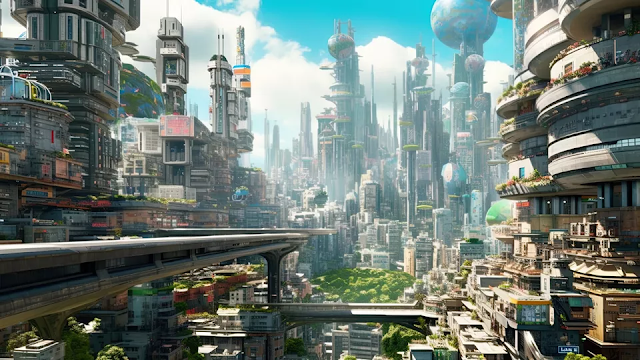Android co-creator to develop real androids for Google / Android co-creatore per sviluppare androidi reali per Google
Android co-creator to develop real androids for Google / Android co-creatore per sviluppare androidi reali per Google
Segnalato dal Dott. Giuseppe Cotellessa / Reported by Dr. Joseph Cotellessa
Yes, Google has set itself on a very broad and nonspecific road to developing robots for general use, hinting at a future seen in The Jetsons and I, Robot. The as-yet-unnamed new company is helmed by Andy Rubin, a legendary Google elder most famous for leading the Android division to its place as the (arguably) dominant mobile OS. (Unbelievably, there are as yet no plans to work the Android name into this venture.) Rubin has a background in robot engineering that predates his time with both Google and Apple, which together with his track record as a rabid achiever, makes one thing very clear: Google is tired of waiting for robots.
That seems to be the impetus behind a lot of Google’s most strident moves, actually; it’s not so much that Google believes that it is the best possible company to do robots, or affordable fiber optic connections, or a balloon-driven global internet, but rather that it has ideas about how to make money off of such systems and can no longer wait around for others to bring them into being. Google quietly acknowledges the fact that its robo-innovations will first find traction on the industrial side, rather than the consumer, replacing those few remaining human manufacturing jobs with robots of unprecedented quality. Outside of this very proximate (and out of character) application, the company have said precious little about its plans for robot tech.
Operating in secret for the past several months, this robot offshoot purchased several companies specializing in things like robot vision and pathfinding, accurate arms and manipulators, and omni-directional powered wheels. Combine those ideas with existing techs like drone pathfinding and Google’s own speech and image analysis software, and you’ve got the potential for some extremely effective intelligence gathering agents.
That’s what makes the idea of a G-Bot so compelling. History implies that Google will shy away from the traditional view of the robot as an object and toward a new conception of the robot as a service. Google has made itself a world power by selling what ultimately amounts to highly curated browsing histories; just imagine what they could achieve with an autonomous camera in your home.
Amazon is also getting into the autonomy game, trying to outsource its most troublesome human elements.
These might seem like conspiracy theories or doomsday scenarios, but this is simply Google’s business; from rolling out new super-phones to laying down new lines of fiber optic cable, it has always seen hardware as the tiresome but necessary vehicle for its true service: data. The long-term value of having every American on a fiber optic connection was enough to justify the short-term costs of Fiber. Even Calico smacks of this trademark self-interested altruism; while there’s no doubt Google wants to extend and improve the human life-span, the most glaring and lucrative hole in Google’s knowledge about us is our medical history. Pure data services like Google Health couldn’t convince us to hand over that information, so Google was again forced to reverse engineer an infrastructure through which we might happily serve it its product: us.
Some call Google’s moonshots a sign of vision, others a mark of desperation. In reality, they simply show that Google has an abstract-enough understanding of its place in the data ecosystem to be able to imagine its model playing out on a wide variety of different stages. Head-mounted cameras can provide a window into what you see, while self-driving cars can know where you’ve gone, and when. Robots, cable, and life extension might all seem like odd choices for a company built on ad sales, but implemented properly they could be the ultimate realization of what Google’s been trying for all this time.
ITALIANO
Sì, Google si è posta su una strada molto per lo sviluppo di robot per uso generale, accennando a un futuro visto in The Jetsons e I, Robot. La nuova società non ancora senza nome è diretto da Andy Rubin, un leggendario Google anziano famoso per aver guidato la divisione Android per il suo posto come il sistema operativo mobile (discutibilmente) dominante. (Incredibilmente, ci sono ancora alcuna intenzione di lavorare il nome Android in questa impresa.) Rubin ha un background in ingegneria robot che precede il suo tempo sia con Google e Apple, che fa una cosa molto chiarA: Google è stanco di aspettare per i robot.
Da: http://www.extremetech.com/extreme/172108-android-co-creator-to-develop-real-androids-for-google



Commenti
Posta un commento